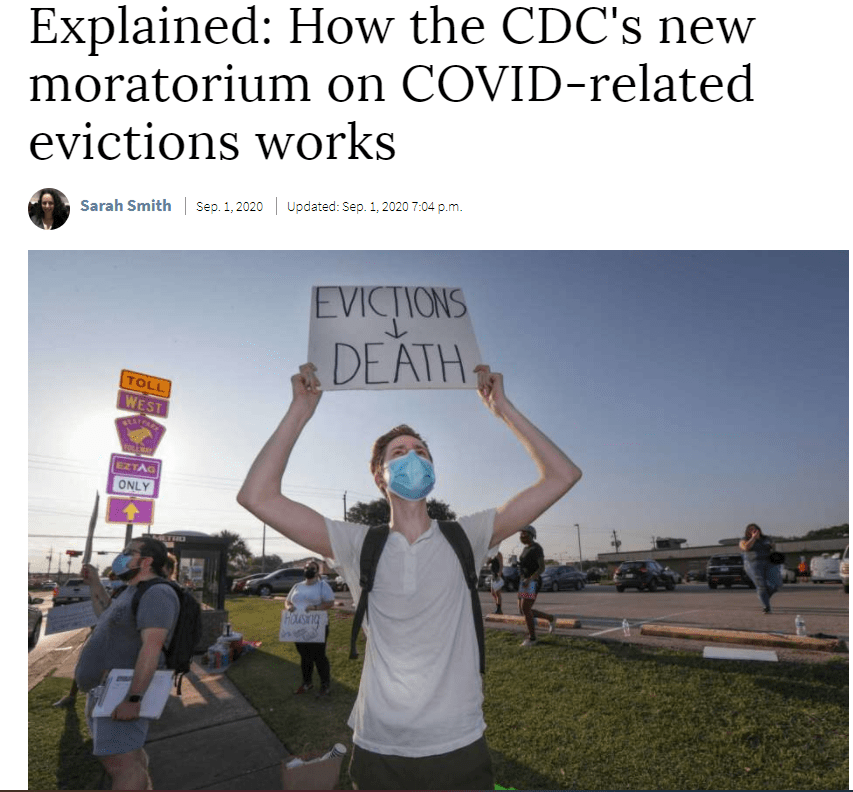On September 1, 2020, the Centers for Disease Control and Prevention("CDC") took action to block evictions. The CDC issued an order that bans evictions from September 4, 2020, through December 31, 2020, to stop the spread of COVID-19. You can read the order here.
Under the CDC order, any landlord with the legal right to evict a tenant will not be allowed to. However, you will have to meet specific requirements.
How can I apply?
Suppose you are a tenant, lessee, or resident of a residential property in any state. In that case, you might be eligible to stop a potential eviction from your current home. Unless the CDC order is extended, changed, or ended, you cannot be ejected or removed from where you live.
If you want to be eligible, you will need to meet the following requirements.
1. You have used your best efforts to obtain government assistance for rent or housing. Any rejection letters from government programs or failure can be proof of your best efforts. Not sure where to turn? You can call 211, and they will help you.
2. You expect to earn no more than $99,000 in annual income for 2020 (or $198,000 if filing a joint tax return with your spouse).
- Suppose you don't meet the previous requirement. In that case, you could still be eligible if you did not report any income to the federal government in 2019; or if you received a stimulus check this year
3. You cannot pay the full rent or make a full housing payment due to substantial loss of income, loss of compensable working hours, loss of wages, you were laid-off, or you had extraordinary medical expenses. Under the CDC order, extraordinary medical expense means any expense above 7.5% of one's adjusted gross income.
4. You are doing your best to make timely partial payments close to the full amount as your circumstances allow.
5. Eviction would "likely" lead to homelessness, or you're having to move to a place where you could get sick from being close to others, including homeless shelters.
So, what does this mean?
The current CDC order has some requirements that might be subjective. For that reason, you want to make sure that you have evidence or documents that show that you meet the requirements. Your landlord might disagree. However, it's important to have proof if you need to fight back legally. Also, always provide true and accurate information. Any false or misleading information may result in criminal actions, fines, or imprisonment.
Consider that this order does not relieve you as a tenant of your obligation to pay rent, any housing payment, or follow your lease agreement obligations. You may still be evicted for reasons other than not paying rent or making a house payment. For example, you might get evicted if you engage in criminal activity while in residence; or threaten others' health or safety. At all times, follow the rules and obligations under your lease agreement.
Finally, consider that, after December 31, your landlord may require payment in full for all the missing payments. Failure to pay might make you subject to eviction.
The solution?
We know that this order does not entirely solve your current financial situation. However, we are here to help you walk through the process smoothly. With our service, you can automatically draft the declaration forms that you will need to avoid being evicted or removed from where you live.
This service is entirely free as a part of the mission of A2J Tech to build technology solutions that improve access to justice. Please contact us if you have any questions.
